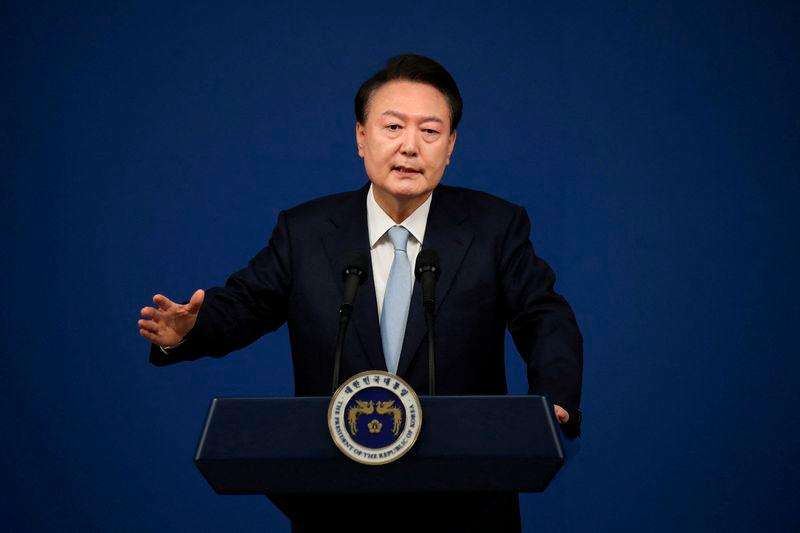South Korean President Yoon Banned From Leaving Country Amid Martial Law Fallout

South Korea’s President Yoon Suk Yeol has been prohibited from leaving the country, the Ministry of Justice confirmed on Monday, marking an unprecedented development in the nation’s history. This comes in the wake of a political crisis triggered by Yoon’s brief imposition of martial law earlier this month.
The turmoil began on December 3, when Yoon deployed special forces and helicopters to parliament, only for lawmakers to overturn his decree and force him to rescind the order. Massive protests followed, with demonstrators braving freezing temperatures to demand his resignation.
Despite surviving an impeachment motion on Saturday, Yoon faces mounting legal challenges, including allegations of insurrection. Justice ministry officials confirmed that Yoon is now the first sitting South Korean president to be barred from international travel.
In addition to Yoon, several high-ranking officials involved in the martial law episode are also under travel restrictions. These include former Defense Minister Kim Yong-hyun, who is currently detained, and ex-Interior Minister Lee Sang-min. General Park An-su, responsible for overseeing the martial law operation, and Defense Counterintelligence Commander Yeo In-hyung are also barred from leaving the country. Park was summoned for further questioning on Monday.
The failed impeachment attempt left the opposition fuming, as members of Yoon’s People Power Party (PPP) walked out of the parliamentary session, preventing the two-thirds majority needed to pass the motion. In exchange, Yoon reportedly agreed to delegate his powers to the prime minister and the PPP leader, sparking accusations of constitutional violations.
“This is an unlawful, unconstitutional act of a second insurrection,” declared Democratic Party floor leader Park Chan-dae. Critics argue that Yoon’s move to transfer authority to unelected officials contravenes South Korea’s constitution, which only allows for power transfers in cases of presidential incapacitation, resignation, or impeachment.
Constitutional law expert Kim Hae-won described the situation as resembling “an unconstitutional soft coup.” He added that the constitution outlines clear procedures, such as impeachment, for addressing issues with the presidency.
Despite the apparent political vacuum, the Defense Ministry confirmed that Yoon retains formal control of the military as commander-in-chief. Spokesperson Jeon Ha-kyou stated that “legally, control of military forces currently lies with the commander-in-chief,” even as tensions persist on the Korean Peninsula.
Yoon apologized for the “anxiety and inconvenience” caused by the martial law declaration but stopped short of resigning. He vowed to accept full political and legal responsibility for his actions, leaving decisions about his future to his party.
The opposition party, led by Lee Jae-myung, has pledged to make another attempt at impeaching Yoon, with a new vote scheduled for Saturday. Massive protests are expected to converge once again at the National Assembly.
Meanwhile, Yoon’s approval rating has plummeted to a historic low of 11%, according to a Gallup poll commissioned by local media. As investigations and political maneuvers continue, the embattled president faces mounting pressure from both legal authorities and public discontent.

